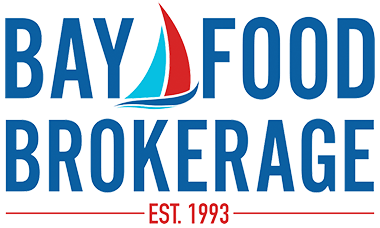
Our Owner, President and CEO Cammie Chatterton has worked in the food industry for over thirty years. In fact, she was one of the first women in the country to open a retail food brokerage company, in 1993. Currently, Bay Food Brokerage is one of the fastest-growing businesses in Tampa Bay, where we’re based.
So, to say Cammie knows a lot about the retail food industry is an understatement. This includes her deep understanding of what it takes for new food manufacturers to succeed.
Cammie often consults with start-up food manufacturers looking to her for guidance. The following are the five most important tips she shares with them.
Understand your target audience
It’s critical that new food manufacturers understand their target audiences and their preferences. This will play a role in everything from flavor selection to package design.
“For example, we’ve seen with some of our clients that Millennials tend to like unique flavors,” Cammie said. “Meanwhile, Baby Boomers might prefer the same product in more traditional flavors.”
As another example, one of our clients puts a QR code on their packaging. The brand knows it appeals to a younger, tech-savvy audience who knows how to use the code.
“Just don’t throw a new product against the wall to see what sticks,” Cammie said. “Understand your customers and what they want first.”
Design appealing and functional packaging
New food manufacturers should design product packaging that appeals to its target audience. This should take into account everything from the overall look and feel of the visual branding to the information provided.
“Consumers want to know what is in what they’re eating and where it comes from,” Cammie said. “It’s important that products put their attributes front and center on their packaging.”
Also, food manufacturers looking to get their product into grocery stores need to consider what it will look like on the shelf. Will it fit into the shelf space? How will it look next to other products? Is it designed to be displayed both vertically and horizontally?
“I recently had a buyer tell a manufacturer that the packaging had to be two-sided in order for him to buy the product,” Cammie said. “That way, he’d have the flexibility to display the product horizontally or vertically.”
Hire a retail food brokerage company that knows your category
A lot of new manufacturers want to keep in their pockets the small percentage-of-sales fee that a retail food brokerage company requires. However, if you work with the right broker, the sales the company makes will far outweigh the commission fee.
A retail food brokerage company can be a partner to help you navigate the industry and maximize sales. Look for a company that has its finger on the pulse of what’s going on in your food category.
“If you’re selling meat, hire a retail food brokerage company that’s an expert in meat,” Cammie said. “A good broker will be your eyes and ears and will direct you appropriately.”
Sell your products in smaller retailers first
It’s extremely rare for a new food manufacturer to get a product into a major retailer immediately upon launch. This is actually a good thing, because there are benefits to selling a product in smaller retail stores first.
“Starting with a smaller retailer allows new food manufacturers to work out any kinks,” Cammie said. “You’d rather make mistakes with a 20-store chain than a 2,000-store chain.”
Also, having strong sales with smaller retailers can only help when pursuing the larger retailers later.
Have a marketing plan and budget
Getting a new product onto store shelves isn’t the end of the game. Food manufacturers need to have a marketing plan and budget.
The marketing plan should include the strategies and tactics you plan to execute for the product. And the budget should account for all costs involved. That may include marketing research expenses, professional fees and advertising spending.
“Advertising doesn’t have to cost a lot,” Cammie said. “But new manufacturers have to have a plan for marketing their product.”
Looking for a retail food brokerage company to get your product into stores? Contact us today to learn more.
